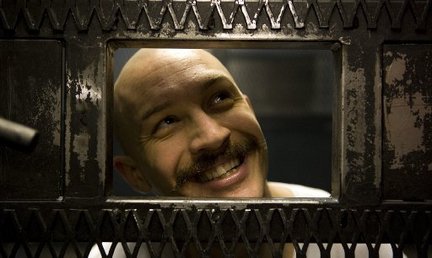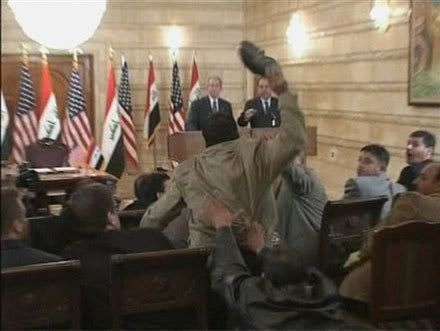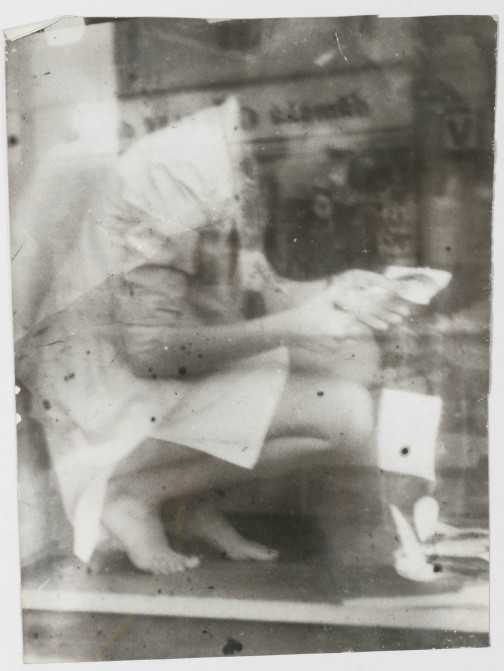Pawn recently withdrew from the social networking site Facebook following a year and a half involvement. Friends, and “friends” will doubtless ask why (and indeed, some already have). The answer is both simple and complex.
The simple answer is that I don’t like what the use of the site did to how I interact with people. While “social” networking sites bring a lot of promise, they also present many pitfalls. And these benefits and drawbacks have as much to do with you, the user, as with their own inherent dynamics. This blog, and the mailing list which preceded it, going back five years now, is itself a sort of social network. For while it is primarily a forum for me to express my thoughts, etc., it also permits a back and forth, a dialogue, and has even included direct, primary posts by others. In addition to my personal rants or other writings, I have often featured links to articles and stories elsewhere which thought worthy of attention, posted photographs, music clips, etc. In other words a lot of what one can do at Facebook, but without the large community surrounding it.
That community, however, can be a both a blessing and a curse. Facebook, and sites like it (i.e. LinkedIn, MySpace, etc.) provide extensive tools to build community in ways we have never seen before. This is a godsend for organizers from local grass roots up to presidential campaigns, but works equally well for fear mongers as prophets, for hate groups as for charities. My very first girlfriend tracked me down via LinkedIn after nearly thirty years, to share memories and catch up on two lives now very separate. So, too, former lovers have tracked me down whom I would rather not have so done.
Therein lies one of the problems with a media which is at once both public and private. Anyone who has spent any time at all on social networking sites has seen a friend or friends mistakenly post in a public way what was intended to be a private message. I actually made it somewhat of a personal mission to help educate people about how to use Facebook with security and privacy in mind. Just as one can rekindle old connections, so one must cope with the ramifications of doing so, in both the public and private realms. An old schoolmate wants to be your friend, and has become friends with many people whom you actually have kept up with since those old days. If you don’t become friends are you being rude? What will your other former classmates think of your standoffishness? It’s the old peer pressure writ large and on the Internet.
Then there is the odd dynamic of “meeting” new people, a friend of a friend or just someone with common cause, say another member of a local political group. They share your view, or a common link, and in the anonymous and yet connected world of social networking it is perfectly natural to “friend” each other. In a real world setting there is much more context for such a situation. A mutual friend can offer either a direct introduction or a muted aside, encouraging or discouraging such a friendship, or in the context of a local political meeting or other event, one may infer more about the other from the goings on.
Not so in the cyber world. I was friended by a couple of people following a comment I made on the fan page for a long-defunct local punk band. in 1981 I had done several shows with this band, and had gotten to know some of them quite well. Following my comment, a few recollections from that era, I received friend requests from these two, one male one female, who were fans of the band and the nightclub where I had managed back then. Turns out they both used to come there as underage gate crashers whose youth was well hidden by the combination of fake IDs and the heavy makeup and hair dye prevalent in that crowd. I kept them as “friends” more because they posted interesting links to artworks, but never really interacted with them.
Interaction on social networking sites is another area of potential problems. The forum provided on such sites can often serve to magnify the tendencies already present when in a group. Pawn, believe it or not, was a class clown in his youth. One standout characteristic of a class clown is the tendency to speak first and consider later. This is bad enough in real life, where the words one utters are heard by a room full of people. Put it on the Internet, and the potential for regret or embarrassment multiplies. This is further compounded where one cannot remove, un-say or delete ones utterances. Just such a situation developed for me in the recent past.
In making what was intended to be a witty, sarcastic comment to an acquaintance’s post, instead I managed to offend them. My bungled wit came across, even to my own eyes, as mean and rude — and ill considered. There being no way to retract the comment, no way to unring that bell, it instead hung in the air. There are examples galore of ill considered public utterances abounding on the Internet, from sites like Overheard in New York to Texts From Last Night, and new terms in the public lexicon, such as Drunk Dialing and TMI. In the cyber world, when you screw up, it is never just a room full of people who know, or may know.
So, what happened in this situation? The offended party “unfriended” me, a term which has no real world equivalent. Perhaps that’s because in the real world when we no longer wish to associate with someone we simply stop doing so. Now, true enough, anyone who has been stalked can tell you that it is not necessarily so simple (this I know), but by and large if we no longer wish to know what so-and-so is up to, we stop asking, calling, visiting, etc. and our spheres of experience will disengage. Not so on-line, where we must actively sever the link. What can be accomplished passively in-life requires active intervention in on-line.
In the world of Facebook, such an action is silent. It is not like calling someone up and saying “We’re not friends anymore!” but rather you click a button and that person silently and without their direct knowledge is no longer your friend. They may never know that this has happened, until they try to reach out to you and find you no longer in their list. Or they go to a, formerly, mutual friend’s page and see you appear not in the list of mutual friends, but in the list of all friends. This quiet rebuff is all that is needed to lower the boom of disapproval.
That is how I found that I had been unfriended, and it brought home to me just how absurdly this new media (for that is what it is, ultimately, is media) has wound itself into our lives in ways that are as destructive as they are constructive. I was temporarily crushed to see that I had lost a friend, yes, but then reflected on the fact that I have only ever met this person a few times, have no history with them, and only really knew them on-line. The lingering feeling, however, is the shame I felt at my embarrassing comment. Much like that I still feel for a bad joke told too loudly at a public event over twenty years ago.
But more, I had allowed my interactions with this new media become so central to how I interacted with people I truly do know, love and relate to in-life and not just on-line. I recognize my peevishness when someone wouldn’t react on-line to things I had posted, or when they failed to keep up their on-line counterpoint to their in-life reality. And I realized that it was just too easy to pretend that since I was present in my friends lives on-line that I was present in-life, when, in fact, I was absent there.
Thanksgiving is in two days time, and soon after I will begin to make and send my holiday greeting cards. This, too, is an act of make-believe social interaction, this annual ritual of pretending that we are still connected to all of our aunts and uncles, old schoolmates and neighbors. I long ago switched to printing out address labels rather than hand addressing, but I still take the time to scrawl a line or two into each card, lending an air of authenticity to this otherwise artificial intercourse. I will make an effort, this year, to be more present in that process, to be more personal in those wishes, to be more thoughtful as I lick those stamps.
Will I ever return to Facebook? For now I cannot say. Every year I make my own Christmas cards, using images I compose or photograph or cull from family archives. I post those on Facebook, as well. I am not sure I’ll update it this year. We’ll see.






